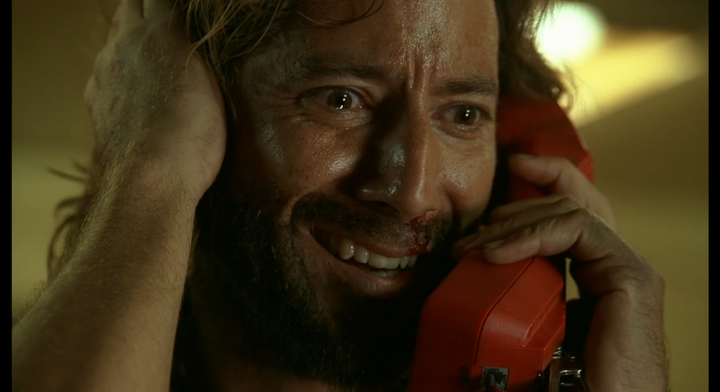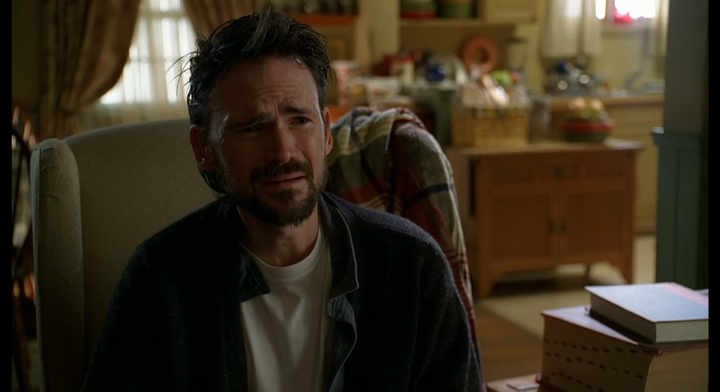Both Sides, Part 1: Name The Two Sides
The latest Chappelle thing, and the latest horrible terrible no-good Texas School thing, and a question: What are the two sides in “both sides,” anyway?

Note: this essay was originally published on Revue on October 18, 2021.
A hypothetical scenario: You and I are having lunch.
Conversation comes around to Dave Chappelle’s new special, about the fact that some find Chappelle’s material about trans people demeaning and harmful, even dangerous, and think it disappointing, even outrageous, that Chappelle would spend so much time, across multiple specials, targeting one of the most at-risk groups of people in the country, and furthermore that Netflix should face critical reproach, even direct action, for offering their immense platform and wealth to somebody who insists on making this a centerpiece of his output.
We discuss it.
I find Chappelle’s specials uncomplicatedly hilarious and think everyone needs to learn to take a joke—after all, comedians are meant to push buttons. You think Chappelle is very funny, but agree that the trans stuff is offensive, and you wish he’d cut it out. However, you’re uncomfortable with the idea that Netflix should be pressured regarding what voices to platform.
We order lunch. Both sides of the issue have now been heard.
Both.
You know: The two sides. Both of them.
Name the two sides.
But wait, first consider another hypothetical scenario: Say you are a student in a Texas classroom, and I am a teacher. Let’s say we are both people deemed “white” by society.
I teach you that slavery was very hard for many Black people, and that slavers have been harshly criticized for that, even though slavery was the commonly accepted way things were back then.
I then teach you that slavery was actually very good for many Black people, and actually most slavers treated their slaves very well. I ask you to write a paper on the subject “from the perspective of a slave,” with a rubric that specifies I ought to list both bad aspects and good aspects of being enslaved.
You go to lunch, having learned both sides of the issue.
Tomorrow you’ll learn about the Holocaust. And I’ll teach you about both sides of that, too, because a system designed by those who insist on teaching both sides of every issue will do what it was designed to do.
And: it is now the law in Texas that you always learn both sides of every issue.
Two sides. Both.
Name the two sides.

NBC News @NBCNews
NEW: A school administrator in Southlake, Texas, advised teachers last week that if they have a book about the Holocaust in their classroom, they should also have a book with an "opposing" perspective.
Listen to the audio recording obtained by @NBCNews: https://t.co/vS0IjlROMu https://t.co/yPtM1ncjgV
4:05 PM - 14 Oct 2021
I know the two sides we’re meant to think about.
Scenario 1: One one side, there’s those who believe in trans rights, and then on the other there’s those who don’t. Or, if you’re on the other side of the matter, there’s those who believe in free speech, and those who don’t.
Or maybe you’d have a different way of putting it. And we can debate about that.
Scenario 2: On one side, there’s those who believe that slavery was one of our nation’s foundational crimes, which still impacts us in millions of ways both individual and systemic, and on the other, those who believe that our country is the greatest country in the world, and slavery wasn’t nearly as bad as some divisive people—who hate our country and want you to hate yourself—would like you to think it was.
Or maybe you’d have a different way of putting it. And we can debate about that.
However you want to put it, this way of understanding “both sides” centers around: first, a proposition, and, second, a question of whether or not we agree with the proposition.
It’s an abstract matter. It’s philosophical. It’s a debate.
Here’s what’s interesting about the proposition/agreement framing of “both sides”: they consist of you and me, neither of whom is trans, neither of whom is Black.
Do you agree or not? is the question that is asked. We, the two sides, should consider it, and decide, or, if we can’t decide, we should continue to debate.
And so we consider both sides, and debate, and so it becomes another topic that people debate, featuring propositions with which some people agree and other people don’t. So maybe the proposition is good, or maybe it’s bad, but either way it is acceptable, and people who will not be harmed, threatened, or persecuted either way have license to consider and decide on the matter, on behalf of people who will be harmed, threatened and persecuted, and still be considered reasonable no matter how they decide.
How interesting.
Let me propose another way of thinking of “both sides.”
Here goes:
On one side, there are the people who are directly affected by the issue, who speak to the harm caused by it from the perspective of their lived experience; and on the other side, there are those who are not.
I think those are the real “both sides.”
There’s me, and then there are people who struggle daily against anti-trans bigotry.
There’s you, and then there are people who have inherited the harm, but not the wealth, of our country’s legacy of genocidal theft, which is what human enslavement always is.
There’s you and me, disagreeing about the issue, but still on the same side of this issue, precisely because we are not directly targeted, threatened, harmed, or persecuted by it. And then there are trans people or Black people, who, in both different and similar ways, are directly targeted, threatened, harmed, and persecuted.
If we think of “both sides” that way, then we naturally have to listen to people directly affected, don’t we? Moreover, we have to do so in a way that prioritizes their perspective on the matter above our own, because it logically follows that as people directly affected, they have access to relevant experiential information that we do not.
Chappelle seems to understand this in his latest special, at least to an extent. At one point he makes the point that the LGBTQ struggle for equality appears to have in ways surpassed the Black struggle for equality, precisely because it has at least partial access to whiteness—an interesting point to make, if explored in a way that still honors the perspective of LGBTQ people, which would at minimum need to feature a premise that recognizes the existence of Black LGBTQ people.
People who tell me we have to listen to “both sides” don’t tend to frame issues along lines of affected/not affected, and if they do, they frame themselves as being the one directly affected, threatened, and persecuted, mostly because they now face criticism for refusing to listen to people directly affected, partially because people who disagree with them refuse to prioritize their perspective on the matter.
Chappelle, I must note, uses his prior insight as a way to separate the Black and the trans struggles for equality almost completely—even to position them as competitively oppositional—and continues to insist that he be permitted to find the daily persecution against which trans people struggle to be a “hilarious predicament"—a framing one hopes nobody would countenance if applied to the struggle for Black racial liberation and equality. I certainly wouldn’t expect Dave Chappelle to countenance such a framing.
His is a framing that insists: these people do not matter enough for me to hear them. But what do you think? Let’s you and me decide together.
Hey there - I’m publishing a book of essays, and my readership is helping me do that. If you want the details on how you can get in on that and get a signed copy and my thanks in the acknowledgement, click this link. (If you do not want the details on how you can get in on all that, click this link.)
If you want to support my work but don’t want to pay Substack, you can find information about that here.
If we approach “both sides” in this way, we never have to hear from people who will be directly affected, who can speak to it from their lived experiences—who in fact have no choice but to experience the harm of it.
And as long as “both sides” is simply a matter of agreement or disagreement with a proposition, then the debate over a matter like “is systemic racism real?” or “do trans people even exist?” will continue as long as there is somebody who insists that the answer is “no.”
Which means that trans people and Black people will have to go on struggling for life, waiting for permission to be permitted to exist as equals in the world, from people who have already decided they shouldn’t be.
By looking at “both sides” along the lines of “agree/disagree” rather than “affected by/unaffected by” creates a permission structure that erases the people directly affected from the equation.
It almost seems designed to do that, if you think about it long enough.
And yet, if you’re like me, you’re constantly told you have to “consider both sides,” in this precise way.
If you’re like me, you might start to wonder: what motivates an insistence on this version of both sides?
Which is a question to take up next time.
__________
A.R. Moxon is the author of The Revisionaries, which is available in most of the usual places, and some of the unusual places. He cannot sanction your buffoonery.




Comments ()